

Articles
How Do You Care For Quartz Countertops
Modified: January 18, 2024
Learn the best practices for caring for quartz countertops in this informative article. Discover expert tips for maintaining and cleaning your quartz surfaces to keep them looking pristine.
(Many of the links in this article redirect to a specific reviewed product. Your purchase of these products through affiliate links helps to generate commission for Storables.com, at no extra cost. Learn more)
Introduction
Quartz countertops have gained immense popularity in recent years due to their durability, low maintenance requirements, and stunning aesthetic appeal. Made from engineered stone, quartz countertops offer a beautiful and practical solution for kitchens and bathrooms. Whether you’ve installed newly minted quartz countertops or are considering them for your next home improvement project, it’s important to understand how to care for them properly.
In this article, we’ll explore the benefits of quartz countertops and provide you with valuable tips on how to clean and maintain them to ensure their longevity. By following the recommendations outlined here, you’ll be able to keep your quartz countertops looking brand new for years to come.
Key Takeaways:
- Proper care and maintenance of quartz countertops, including regular cleaning, avoiding harsh chemicals, and protecting from heat and scratches, can ensure their longevity and preserve their beauty for years to come.
- By following manufacturer’s guidelines, using non-abrasive cleaners, and addressing stubborn stains promptly, homeowners can maintain the durability and aesthetic appeal of their quartz countertops, enhancing the overall value of their home.
Read more: How Do You Seal Quartz Countertops
Benefits of Quartz Countertops
Quartz countertops offer numerous benefits that make them a popular choice among homeowners and designers. Here are some of the key advantages of choosing quartz countertops for your kitchen or bathroom:
- Durability: Quartz countertops are manufactured using a combination of natural quartz stone and resin. This makes them extremely durable and resistant to scratches, stains, and heat. They are less likely to chip or crack compared to other countertop materials, ensuring they withstand daily wear and tear.
- Low Maintenance: Quartz countertops are non-porous, which means they don’t require sealing like natural stone countertops. This makes them highly resistant to stains and bacteria growth. Simply wiping them down with a mild soap and water solution is sufficient for routine cleaning.
- Aesthetically Pleasing: Quartz countertops come in a wide range of colors, patterns, and finishes, allowing you to find the perfect match for your kitchen or bathroom design. Whether you prefer a sleek and modern look or a more classic and traditional style, there’s a quartz countertop option to suit your taste.
- Hygienic: As mentioned earlier, quartz countertops are non-porous, which means they don’t harbor bacteria or other microorganisms. This makes them a hygienic choice for food preparation areas, ensuring a clean and safe cooking environment.
- Resistant to Stains: Quartz countertops are highly resistant to staining from common household items like coffee, wine, and oil. Even if a spill occurs, it’s generally easy to clean up without leaving any permanent marks or discoloration.
- Consistency: Unlike natural stone countertops, which can have variations in color and pattern, quartz countertops offer a consistent appearance. This makes it easier to match or coordinate with other elements in your kitchen or bathroom.
With these benefits, it’s no wonder that quartz countertops have become a top choice for homeowners looking for both practicality and style. By investing in quartz countertops, you can enjoy their durability, low maintenance requirements, and timeless beauty for many years to come.
Cleaning and Maintenance Tips
To keep your quartz countertops looking their best, it’s important to follow proper cleaning and maintenance practices. Here are some tips to help you maintain the beauty and longevity of your countertops:
- Wipe spills immediately: Act quickly to wipe up any spills or messes on your quartz countertops. Use a soft cloth or sponge and a mild soap and water solution for everyday cleaning. Avoid using abrasive cleaners or scrub brushes, as they can potentially damage the surface.
- Avoid harsh chemicals: When cleaning your quartz countertops, avoid using harsh chemicals, such as bleach or abrasive cleaners. These can cause discoloration or damage to the surface. Stick to mild, non-abrasive cleaners that are specifically formulated for quartz surfaces.
- Use a cutting board: While quartz countertops are highly resistant to scratches, it’s still a good practice to use a cutting board when chopping or slicing on the surface. This will help prevent any accidental scratches or damage from sharp objects.
- Protect from heat: Although quartz countertops are heat resistant, it’s best to avoid placing hot pots, pans, or other heated items directly on the surface. Always use trivets or hot pads to protect your quartz countertops from extreme heat and prevent any potential damage.
- Avoid abrasive materials: When cleaning your quartz countertops, avoid using abrasive materials such as steel wool or scrub brushes. These can leave scratches on the surface. Stick to soft cloths, sponges, or non-abrasive scrub pads for gentle cleaning.
- Regularly clean up grease: Grease and oil splatters can occur during cooking, especially in the kitchen. Make sure to wipe up any grease or oil spills immediately to prevent them from absorbing into the quartz surface. Use a degreasing cleaner if necessary, following the manufacturer’s instructions.
- Avoid excessive force: While quartz countertops are highly durable, it’s important to avoid excessive force or impact on the surface. Avoid dropping heavy objects or using excessive force when placing items on the countertop to prevent any potential damage.
- Remove stubborn stains: If you encounter a stubborn stain on your quartz countertop, try using a non-abrasive cleaner specifically designed for removing stains. Gently scrub the stained area with a soft cloth or sponge, following the instructions on the stain remover product.
- Regular maintenance: In addition to everyday cleaning, it’s recommended to perform regular maintenance on your quartz countertops. This includes polishing the surface to restore its shine and applying a quartz sealer if necessary. Refer to the manufacturer’s guidelines for recommended maintenance procedures.
By following these cleaning and maintenance tips, you can ensure that your quartz countertops remain beautiful, clean, and durable for years to come. Regular care and attention will help protect your investment and keep your kitchen or bathroom looking its best.
Avoiding Damages
While quartz countertops are known for their durability, it’s still important to take precautions to avoid any potential damages. By following a few simple guidelines, you can keep your countertops in pristine condition. Here are some tips for avoiding damages:
- Avoid impacts: Quartz countertops can withstand normal daily use, but they can still be damaged by excessive force or impact. Avoid dropping heavy objects directly on the surface and use caution when moving or placing items on the countertops.
- Use cutting boards and trivets: Although quartz is highly resistant to scratches and heat, it’s best to use cutting boards and trivets for cutting, chopping, and placing hot items. This protects the surface from accidental scratches or heat damage caused by direct contact.
- Be cautious with chemicals: Quartz countertops are resistant to stains, but certain chemicals can cause damage. Avoid exposing the surface to harsh chemicals such as bleach, acidic cleaners, and abrasive substances. If any spills occur, clean them up promptly using mild soap and water.
- Minimize exposure to direct sunlight: Prolonged exposure to direct sunlight can cause fading or discoloration of quartz countertops. If possible, use window treatments or blinds to minimize direct sunlight on the countertops. If your countertops are constantly exposed to sunlight, consider using UV-blocking window film.
- Steer clear of high temperatures: While quartz is heat resistant, extreme temperatures can still cause damage. Avoid placing hot pots, pans, or other heated objects directly on the surface. Always use trivets or hot pads to protect the countertops from excessive heat.
- Protect the edges: The edges of quartz countertops can be more vulnerable to chipping or damage. Be mindful of sharp or heavy objects near the edges and avoid bumping or knocking them against hard surfaces.
- Prevent chemical reactions: Certain substances, such as strong acids or bases, can react with quartz surfaces and cause damage. When using household cleaners or chemicals, make sure they are safe for use on quartz countertops. Always follow the manufacturer’s instructions.
- Maintain regular cleaning and maintenance: By following the cleaning and maintenance tips outlined earlier in this article, you can keep your quartz countertops in good condition and prevent any potential damages. Regular care and attention will help prolong the lifespan of your countertops.
By being mindful of these tips and taking necessary precautions, you can prevent damages to your quartz countertops and ensure their longevity. Remember, prevention is key in maintaining the beauty and functionality of your countertops for years to come.
Everyday Care Practices
Taking care of your quartz countertops on a daily basis will help keep them looking their best and ensure their longevity. Incorporate these everyday care practices into your routine to maintain the beauty and functionality of your countertops:
- Wipe down after use: After preparing meals or using the countertops, wipe them down with a soft cloth or sponge. Use a mild soap and water solution to remove any food residue or spills. This will help prevent stains and keep your countertops clean.
- Use gentle cleaning products: To clean your quartz countertops on a daily basis, opt for gentle cleaning products that are specifically designed for quartz surfaces. Avoid harsh chemicals or abrasive cleaners, as they can damage the surface. Follow the manufacturer’s recommendations for cleaning products.
- Avoid cutting directly on the surface: While quartz countertops are scratch-resistant, it’s best to use a cutting board when chopping or slicing food. This will prevent any potential scratches or damages from sharp knives. Similarly, avoid using the countertops as a surface for cutting on other objects.
- Keep the countertops dry: Moisture can lead to staining or water damage, so make sure to wipe up any spills or water droplets promptly. Use a dry cloth or paper towel to ensure the countertops are dry after cleaning.
- Be mindful of heavy objects: Avoid placing heavy objects or appliances directly on the countertops. Instead, use adequate supports and be cautious when moving or sliding heavy items to prevent any potential damage to the surface.
- Use coasters and placemats: To protect the surface of your quartz countertops from water rings or heat damage caused by cups or hot plates, always use coasters and placemats. This will help maintain the appearance of your countertops and prevent any potential damage from prolonged exposure to moisture or heat.
- Don’t use the countertops as a workbench: Avoid using your quartz countertops as a surface for tasks such as hammering, pounding, or other heavy-duty activities. These activities can cause damage to the surface and compromise its durability.
- Regularly inspect the countertops: Take the time to visually inspect your quartz countertops on a regular basis. Look for any signs of damage, such as cracks or chips, and address them promptly. Early detection and repair can prevent further damage and ensure the longevity of your countertops.
By incorporating these everyday care practices into your routine, you can keep your quartz countertops in excellent condition. Remember, proactive care and regular maintenance will contribute to the long-term beauty and durability of your countertops.
Read more: How Do You Cut Quartz Countertops
Removing Stains and Spills
Despite the stain-resistant properties of quartz countertops, spills and stains can still occur. The key is to address them promptly to prevent them from setting and becoming harder to remove. Here are some steps you can take to effectively remove stains and spills from your quartz countertops:
- Blot the spill: For liquid spills, start by immediately blotting the area with a clean, dry cloth or paper towel. Avoid wiping or smearing the spill, as this may spread it further.
- Gently scrape off solid spills: For solid spills, use a non-abrasive plastic scraper or spatula to gently remove the residue. Be careful to avoid scratching the surface.
- Prepare a cleaning solution: If the spill has left a stain or residue, prepare a cleaning solution by mixing dish soap with warm water. Use a mild dish soap that is free of bleach and harsh chemicals.
- Apply the cleaning solution: Dip a soft cloth or sponge into the cleaning solution and gently rub the stained area in a circular motion. Avoid using excessive force or abrasive materials, as they can damage the surface of the countertops.
- Rinse with water: Once the stain has been lifted, rinse the area with clean water to remove any soap residue. Wipe dry with a clean cloth or paper towel.
- Use a specialized stone cleaner: If the stain persists or if you’re dealing with a stubborn spill, you may need to use a specialized stone cleaner. Look for a product specifically designed for quartz countertops and follow the manufacturer’s instructions.
- Avoid using harsh chemicals: When removing stains from quartz countertops, it’s important to avoid using harsh chemicals such as bleach or abrasive cleaners. These can damage the surface and compromise the integrity of the countertop.
- Address tough stains promptly: If you encounter a tough stain that is not easily removed with regular cleaning methods, consider seeking professional assistance. A stone care professional can use specialized techniques and products to tackle stubborn stains effectively.
Remember, preventing stains and spills is always the best approach, but accidents happen. By acting quickly and using the proper cleaning methods, you can effectively remove stains from your quartz countertops and restore their natural beauty.
Regular Cleaning Methods
Maintaining a regular cleaning routine is essential for keeping your quartz countertops looking clean and pristine. Here are some simple yet effective cleaning methods to incorporate into your regular countertop maintenance:
- Use a non-abrasive cloth or sponge: When cleaning your quartz countertops, opt for a non-abrasive cloth or sponge. Microfiber cloths are an excellent choice as they are gentle on the surface and effectively remove dirt and debris.
- Prepare a mild cleaning solution: Create a mild cleaning solution by mixing warm water with a small amount of mild dish soap. Avoid using harsh cleaners, acidic substances, or bleach, as they can damage the surface of the countertops.
- Dampen the cloth or sponge: Wet the cloth or sponge with the cleaning solution, ensuring it is damp but not soaking wet. Excessive moisture can seep into the seams of the countertops and cause damage over time.
- Wipe the surface: Gently wipe the entire surface of the quartz countertops using the damp cloth or sponge. Start from one end and work your way across, ensuring complete coverage. This will remove any surface dirt, grime, or residue.
- Pay attention to seams and edges: Don’t forget to clean the seams and edges of the countertops. Use a soft brush or an old toothbrush to remove any debris or dirt that may have accumulated in those areas.
- Rinse with clean water: After wiping down the countertops with the cleaning solution, rinse the cloth or sponge with clean water. Go over the countertops again, this time using only water to remove any residual soap or cleaning solution.
- Dry thoroughly: Finally, use a clean, dry cloth or paper towel to thoroughly dry the surface of the countertops. This will prevent any water spots from forming and keep your countertops looking shiny and clean.
- Avoid abrasive scrubbing: While quartz countertops are durable, excessive scrubbing with abrasive materials can cause scratches or dullness. Stick to gentle wiping and avoid using scrub brushes or steel wool.
- Follow manufacturer’s recommendations: It’s always a good idea to consult the manufacturer’s guidelines for cleaning and maintenance. Different quartz brands may have specific recommendations, so familiarize yourself with their instructions to ensure you’re caring for your countertops properly.
By incorporating these regular cleaning methods into your routine, you can keep your quartz countertops clean, free from dirt and grime, and maintain their beautiful appearance.
To care for quartz countertops, clean up spills promptly with a gentle cleanser and non-abrasive sponge. Avoid harsh chemicals and excessive heat to maintain the surface’s shine and durability.
Using Non-Abrasive Cleaners
When it comes to cleaning quartz countertops, using non-abrasive cleaners is crucial to prevent damage and maintain the quality of the surface. Here are some important points to keep in mind when using non-abrasive cleaners:
- Choose the right cleaner: Look for cleaners that are specifically formulated for quartz countertops. These cleaners are typically labeled as non-abrasive and safe for use on quartz surfaces. Avoid using harsh chemicals, bleach, or abrasive cleaners, as they can cause permanent damage.
- Read the manufacturer’s instructions: It’s important to carefully read and follow the instructions provided by the cleaner’s manufacturer. Different cleaners may have specific usage guidelines, so be sure to follow them to ensure the best results.
- Dilute the cleaner if necessary: Some non-abrasive cleaners may need to be diluted with water before use. Follow the instructions on the cleaner’s packaging to determine the proper dilution ratio. Using the correct ratio will ensure effective cleaning without risking any damage to the quartz surface.
- Apply the cleaner to a cloth or sponge: Instead of spraying the cleaner directly onto the countertops, it’s best to apply it to a soft cloth or sponge. This allows for better control and ensures that the cleaner is evenly distributed across the surface.
- Gently wipe the surface: With the cloth or sponge dampened with the non-abrasive cleaner, gently wipe the entire surface of the quartz countertops. Use smooth, circular motions to remove any dirt, grime, or residue. Avoid applying excessive pressure, as this can potentially damage the surface.
- Pay attention to problem areas: If there are any particularly stubborn stains or spots, focus a bit more on those areas with the cleaner. Gently rub the area with the cloth or sponge in a circular motion to break up the stain. Take care not to scrub forcefully to prevent scratching the surface.
- Rinse with clean water: After cleaning the countertops with the non-abrasive cleaner, rinse the cloth or sponge with clean water. Wipe down the countertops again, this time using only water, to remove any residual cleaner.
- Dry the surface: To finish the cleaning process, use a clean, dry cloth or paper towel to thoroughly dry the quartz countertops. This will help prevent any water spots or streaks from forming and will leave the surface looking clean and shiny.
- Reserve harsh cleaners for tough stains: In the event of tough stains or spills that cannot be removed with non-abrasive cleaners, it’s best to consult a professional stone care expert. They have specialized tools and cleaners that can effectively tackle stubborn stains without damaging the quartz surface.
By using non-abrasive cleaners and following these guidelines, you can safely and effectively clean your quartz countertops, ensuring they remain beautiful and free from damage for years to come.
Protecting the Surface from Heat
While quartz countertops are known for their heat resistance, it is still important to take precautions to protect the surface from excessive heat. Here are some tips to keep your quartz countertops safe from heat-related damage:
- Use trivets or hot pads: Always use trivets, hot pads, or heat-resistant mats when placing hot pots, pans, or cooking utensils on your quartz countertops. These protective accessories create a barrier between the hot items and the countertop surface, preventing direct heat transfer.
- Avoid direct contact with heat sources: Do not place hot appliances such as crockpots, toasters, or electric griddles directly on the quartz countertops. The heat generated by these appliances can cause damage to the surface over time. Instead, place them on heat-resistant mats or trivets.
- Be cautious with hot liquids: When handling hot liquids such as boiling water or hot oil, avoid placing the hot vessels directly on the quartz countertops. Always use a trivet or heat-resistant pad to prevent heat transfer and potential damage to the surface.
- Avoid sudden temperature changes: Quartz countertops are resistant to thermal shock, but it’s still best to avoid subjecting them to sudden temperature changes. For example, do not place frozen food directly on a hot countertop or transfer a hot pot from the stovetop directly onto the quartz surface. Allow hot items to cool down or use a heat-resistant mat for protection.
- Keep portable heating appliances away: Keep portable heating appliances, such as electric heaters or space heaters, away from quartz countertops. These appliances can emit high levels of heat, which can potentially damage the surface or cause discoloration.
- Be mindful of outdoor heat sources: If you have quartz countertops near windows or outdoor areas, be aware of the potential for heat transfer from direct sunlight or outdoor heat sources. Use blinds, shades, or curtains to block excessive heat and protect your countertops.
- Consult the manufacturer’s guidelines: For specific recommendations on heat resistance and care, refer to the manufacturer’s guidelines for your quartz countertops. They may have specific instructions or temperature limits that you should follow to ensure the longevity of the surface.
- Inform household members and guests: Educate your household members and guests about the importance of protecting the quartz countertops from heat. Remind them to use trivets, hot pads, or heat-resistant mats when placing hot items on the countertops to prevent accidental damage.
By following these precautions and implementing protective measures, you can ensure that your quartz countertops remain in pristine condition and are protected from the potential damage that excessive heat can cause.
Read more: How Do They Install Quartz Countertops
Preventing Scratches
While quartz countertops are highly durable and resistant to scratches, it’s still important to take precautions to prevent any potential damage. By following these preventive measures, you can keep your quartz countertops looking flawless for years to come:
- Use cutting boards: Always use a cutting board when preparing food on your quartz countertops. Avoid chopping or slicing directly on the surface, as sharp knives and kitchen utensils can potentially scratch the quartz. Using a cutting board provides a protective barrier between the countertop and the sharp objects.
- Avoid abrasive materials: When cleaning the countertops, avoid using abrasive materials such as steel wool, wire brushes, or harsh scrubbing pads. These can scratch the surface of the quartz. Instead, use soft cloths, non-abrasive sponges, or gentle scrub brushes.
- Be cautious with heavy objects: Do not place heavy objects directly onto the quartz surface. Excessive weight or pressure from heavy appliances, pots, or pans can potentially cause scratches or damages. Use proper supports or protective pads underneath heavy items to distribute the weight evenly.
- Don’t slide or drag objects: Avoid sliding or dragging heavy objects or rough materials across the quartz countertops. This can create friction that may scratch the surface. Lift and place objects carefully to prevent any potential scratches or damages.
- Keep sharp objects away: Avoid placing sharp or abrasive objects directly on the quartz countertops. This includes knives, scissors, metal utensils, or any other objects that may have sharp or rough edges. Instead, store them properly or use a protective cover or holder to prevent accidental scratching.
- Regularly clean the countertops: Keeping your countertops clean and free from dirt, debris, and particles can help prevent scratches. Small particles or crumbs can act as abrasives when rubbed or dragged along the surface. Regularly wipe down your countertops to remove any potential sources of scratches.
- Be cautious during installation: If you’re remodeling or installing new quartz countertops, take extra care during the installation process. Work with a professional installer to ensure the countertops are handled properly and avoid any accidental scratches or damages.
- Maintain sharp edge profiles: Keep in mind that sharp edge profiles may be more susceptible to chipping or damage. If you have sharp edges on your quartz countertops, exercise caution and be mindful when working or using the countertops to prevent any accidental scratches or chips.
By implementing these preventive measures and exercising care in your daily use of the countertops, you can minimize the risk of scratches and keep your quartz countertops looking pristine and scratch-free.
Dealing with Stubborn Stains
While quartz countertops are resistant to most stains, there may be times when stubborn stains require a bit of extra effort to remove. Here are some steps you can take to effectively deal with stubborn stains on your quartz countertops:
- Act quickly: The key to removing stubborn stains is to address them as soon as possible. The longer a stain sits, the more difficult it can be to remove. Don’t delay in taking action to prevent the stain from setting into the quartz surface.
- Gently scrape off residue: If there is any solid residue or buildup on the surface, use a non-abrasive plastic scraper or spatula to gently remove it. Be careful not to scratch the surface while scraping.
- Create a stain-removal mixture: Mix baking soda with water to create a paste-like consistency. Apply this paste to the stained area and let it sit for a few minutes. Baking soda has gentle abrasive properties and can help lift stubborn stains.
- Gently scrub the stain: Use a soft cloth or non-abrasive sponge to gently scrub the stained area in a circular motion. Apply light pressure and be patient as you work the baking soda paste into the stain. Avoid using excessive force, as this can potentially damage the surface.
- Rinse with clean water: After scrubbing the stain, rinse the area with clean water to remove the baking soda residue. Wipe the surface dry with a clean cloth or paper towel.
- Use a specialized quartz cleaner: If the stain persists after using the baking soda mixture, consider using a specialized quartz cleaner. Look for a product that is specifically designed to remove stubborn stains from quartz countertops. Follow the manufacturer’s instructions for usage and apply the cleaner to the stained area. Gently scrub the stain with a non-abrasive cloth or sponge.
- Consider a poultice: For extremely stubborn stains that are deeply embedded in the quartz surface, you may need to create a poultice. A poultice is a paste-like mixture that pulls the stain out of the countertop. Consult a professional stone care expert or refer to the manufacturer’s guidelines for a suitable poultice recipe for your specific quartz countertop.
- Prevent future stains: Once the stubborn stain is successfully removed, take preventive measures to avoid future stains. Wipe up spills immediately, use cutting boards and trivets, and follow proper cleaning and maintenance practices. By maintaining these habits, you can minimize the chances of stubborn stains occurring in the future.
It’s important to note that each stain and countertop may require different treatment methods. When dealing with stubborn stains, it’s always a good idea to refer to the manufacturer’s guidelines or seek advice from a stone care professional for the best approach to remove the specific stain without causing damage to the quartz surface.
Polishing and Sealing
Polishing and sealing your quartz countertops can help enhance their shine, protect the surface, and maintain their overall beauty. Here are some important points to keep in mind when it comes to polishing and sealing your quartz countertops:
- Polishing: Quartz countertops are engineered to have a consistent and polished finish. With regular cleaning and maintenance, the natural shine of the surface should be maintained. However, if you notice any dullness or lackluster appearance, you can use a quartz countertop polish to restore the shine. Follow the manufacturer’s instructions for applying the polish and use a soft cloth or applicator to gently buff the surface.
- Sealing: Unlike natural stone countertops, quartz countertops are non-porous and do not require sealing. The manufacturing process of quartz countertops ensures that they are already highly resistant to stains and do not require additional sealing for protection. Simply following regular cleaning and maintenance practices is sufficient to keep your quartz countertops in top condition.
- Avoid using wax or topical coatings: While polishing is acceptable, it’s important to avoid using wax-based products or topical coatings on your quartz countertops. These products can create a buildup that distorts the natural appearance of the surface and can be difficult to remove. Stick to using quartz countertop polish specifically designed for the surface.
- Regular cleaning and maintenance: The best way to keep your quartz countertops looking polished and beautiful is by maintaining a regular cleaning and maintenance routine. Wipe down the surface with a mild soap and water solution, rinse thoroughly, and dry the surface with a soft cloth or paper towel. This routine will help restore the natural shine of the quartz and keep it looking its best.
- Avoid abrasive cleaners or scrubbing: When cleaning or polishing your quartz countertops, always avoid using abrasive cleaners or scrubbing pads. These can scratch or damage the surface and diminish the overall appearance. Stick to using gentle cleaning products and techniques to ensure the longevity and beauty of your countertops.
- Consult the manufacturer’s guidelines: If you have specific questions about polishing or sealing your quartz countertops, referring to the manufacturer’s guidelines is always a good idea. Different quartz brands may have specific recommendations or products that they endorse for polishing purposes. Following their guidelines will ensure that you’re caring for your countertops in the best way possible.
By following these recommendations and implementing proper cleaning and maintenance practices, you can keep your quartz countertops looking polished and beautiful for years to come. Remember that prevention and regular care are key to maintaining the longevity and aesthetic appeal of your countertops.
Conclusion
Quartz countertops are a popular choice for homeowners and designers due to their durability, low maintenance requirements, and aesthetic appeal. By following the proper care and maintenance techniques, you can ensure that your quartz countertops retain their beauty and functionality for years to come.
Throughout this article, we have explored the benefits of quartz countertops, including their durability, low maintenance, and resistance to stains and bacteria. We’ve discussed the importance of regular cleaning and everyday care practices such as wiping up spills promptly, using non-abrasive cleaners, and protecting the surface from heat and scratches.
We’ve also provided guidance on how to deal with stubborn stains, including using appropriate cleaning solutions and techniques. Additionally, we’ve emphasized the importance of avoiding harsh chemicals and abrasive materials that can cause damage to the quartz surface.
Furthermore, we discussed the polishing of quartz countertops to restore their shine and maintain their overall beauty. We highlighted the fact that quartz countertops do not require sealing, as they are already highly resistant to staining and bacteria growth.
In conclusion, taking proper care of your quartz countertops involves adopting regular cleaning practices, preventing damage from heat and scratches, and addressing any stubborn stains promptly. By following these guidelines and consulting the manufacturer’s instructions, you can ensure that your quartz countertops remain a beautiful and functional focal point in your kitchen or bathroom.
Remember, investing in the proper care and maintenance of your quartz countertops will not only preserve their lifespan but also enhance the overall value and aesthetic appeal of your home.
Frequently Asked Questions about How Do You Care For Quartz Countertops
Was this page helpful?
At Storables.com, we guarantee accurate and reliable information. Our content, validated by Expert Board Contributors, is crafted following stringent Editorial Policies. We're committed to providing you with well-researched, expert-backed insights for all your informational needs.
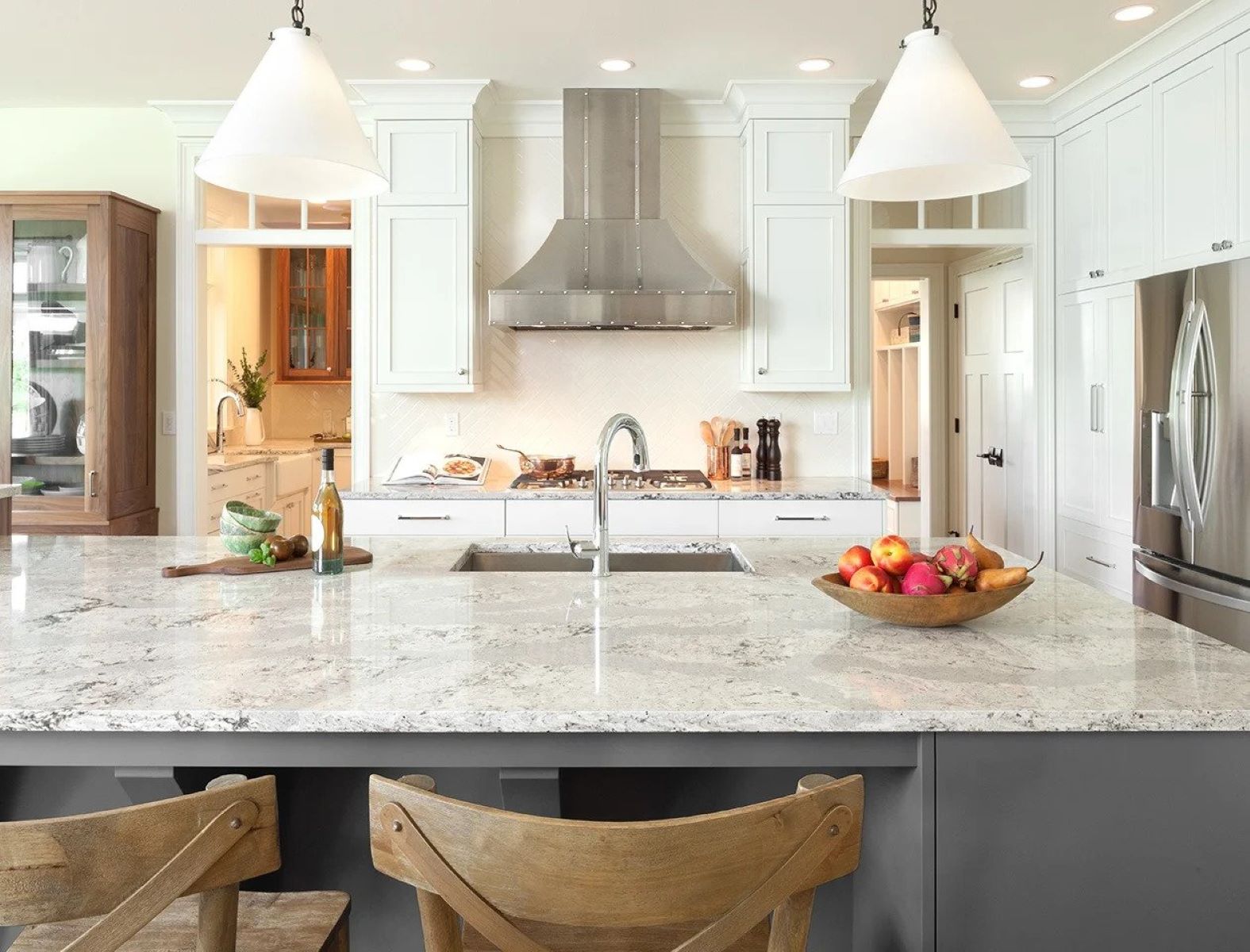

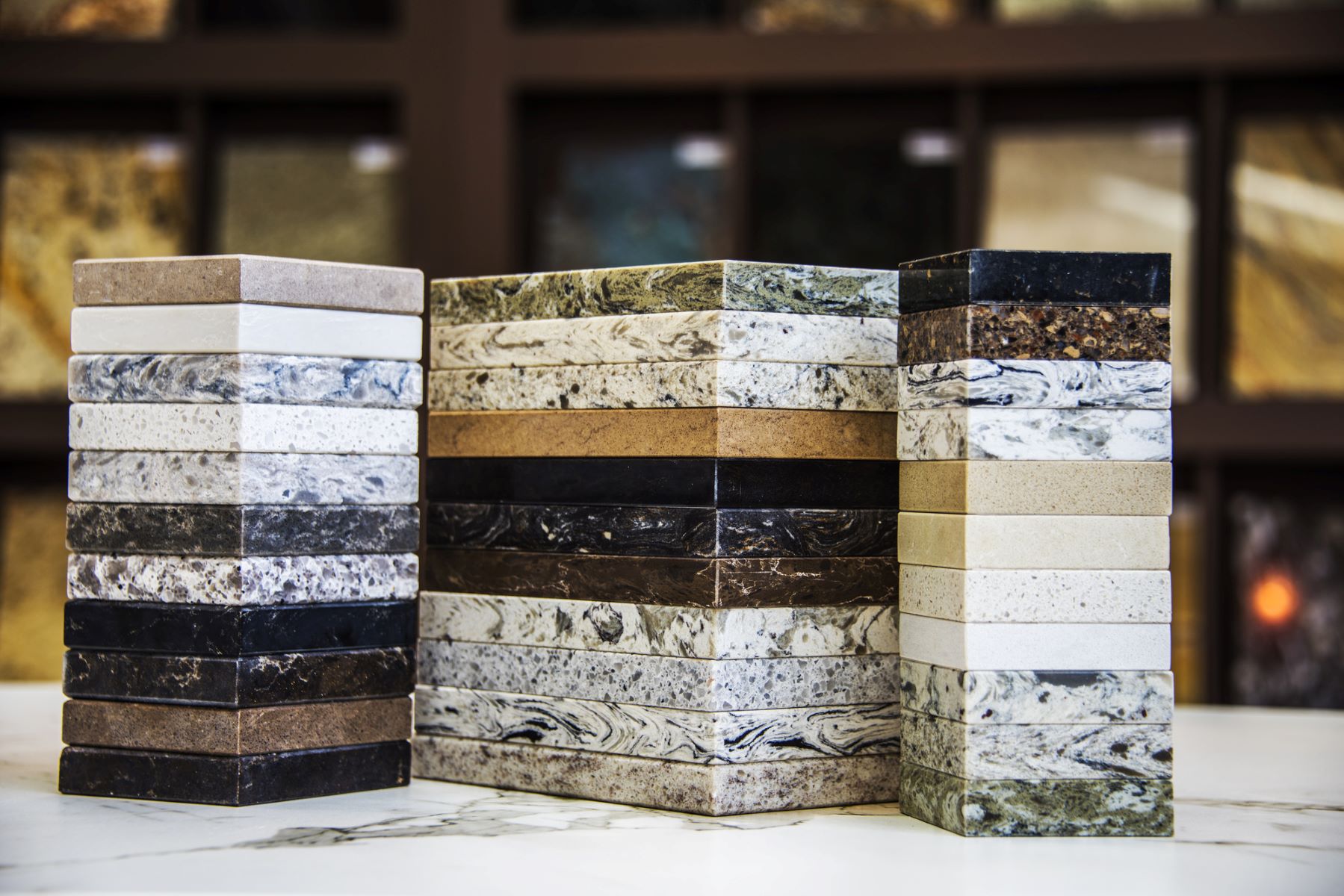
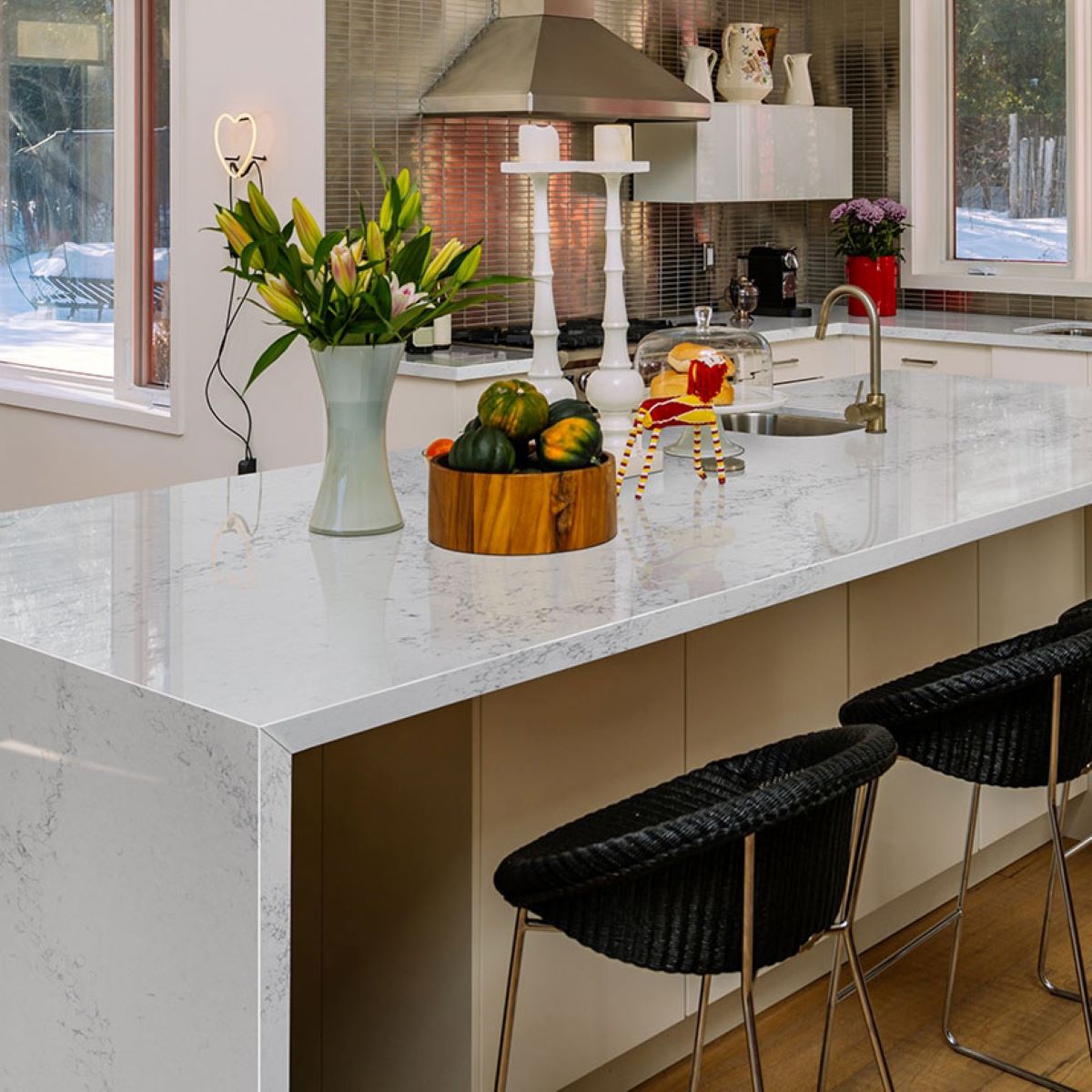
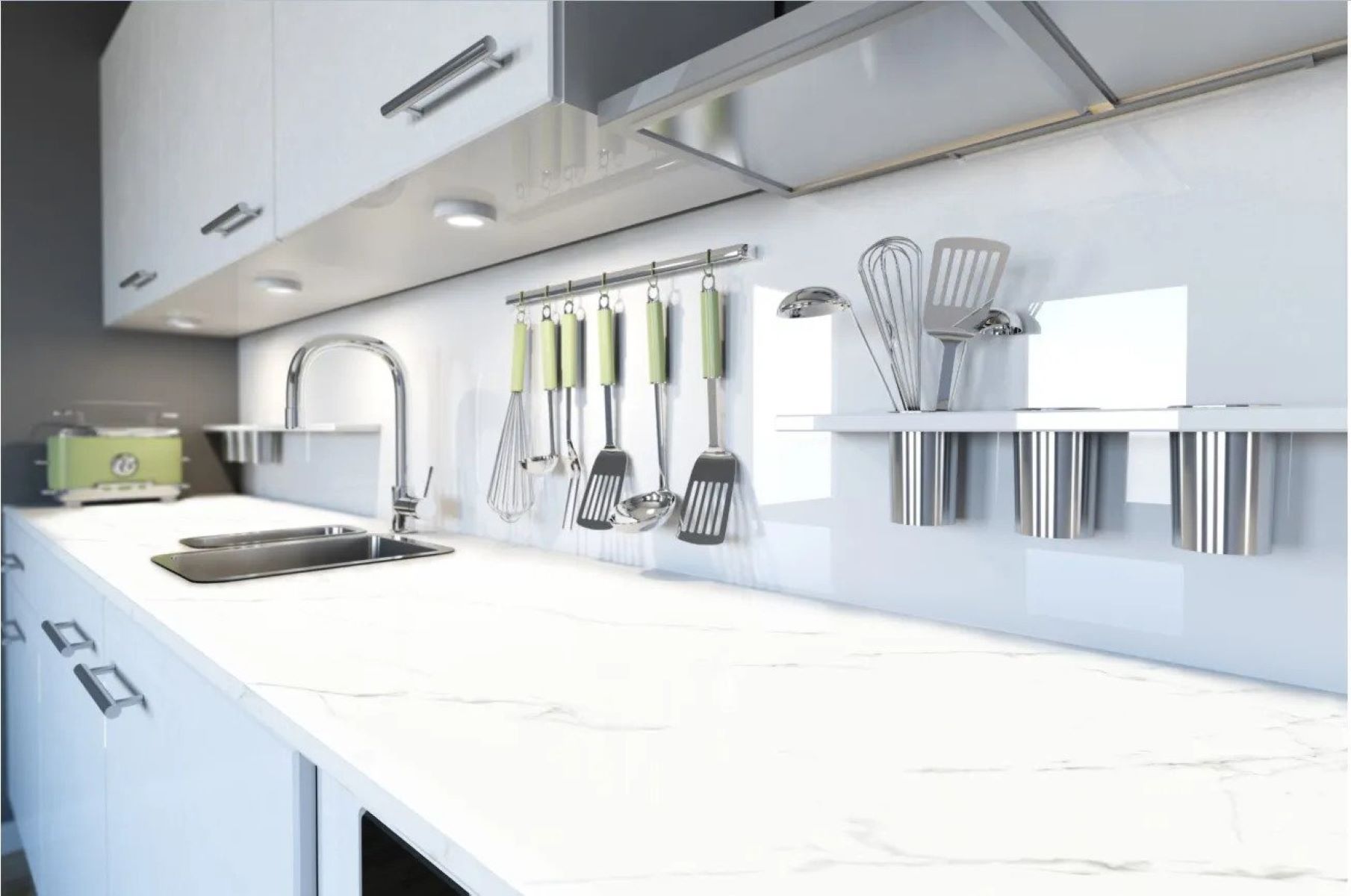
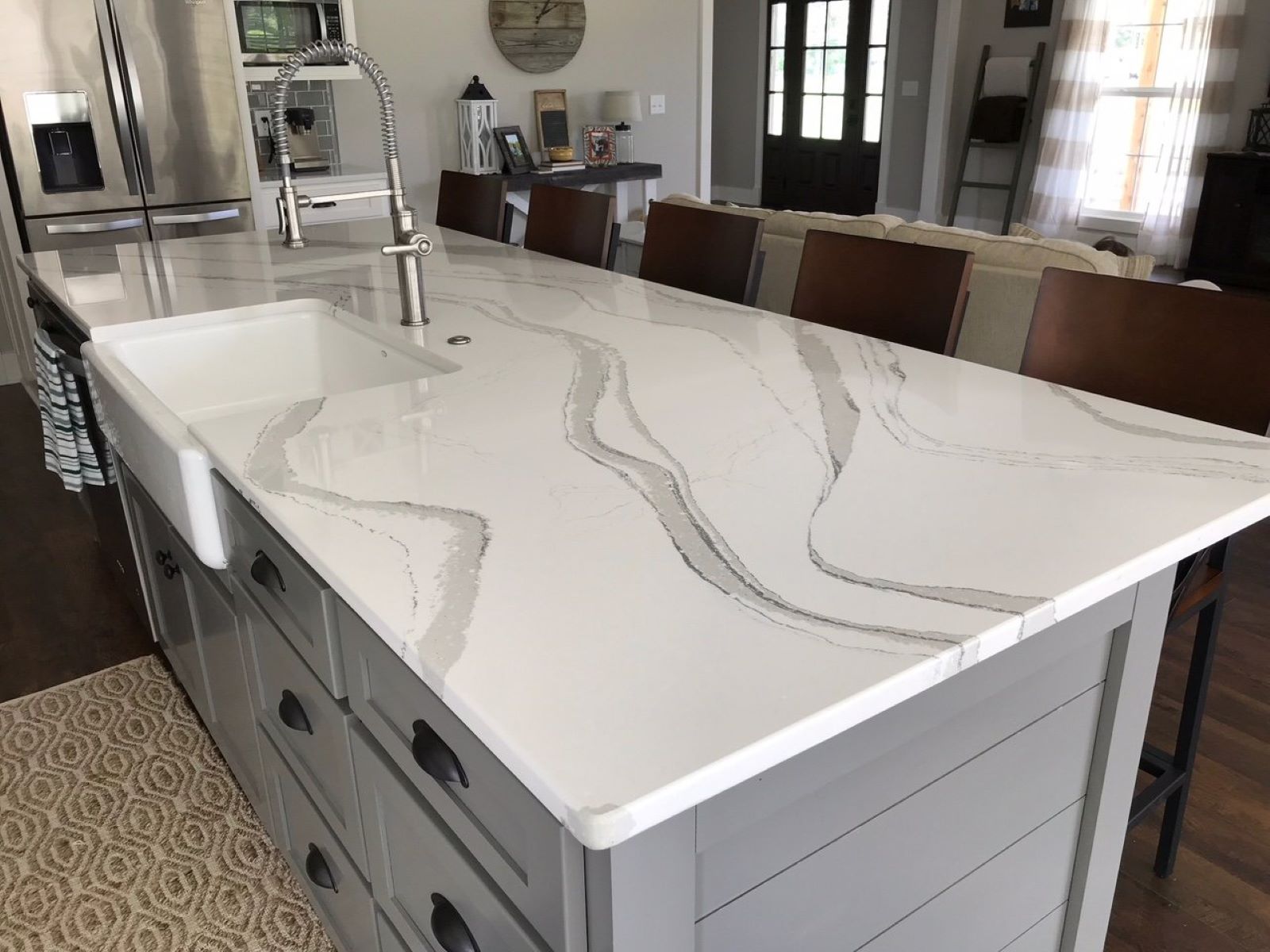
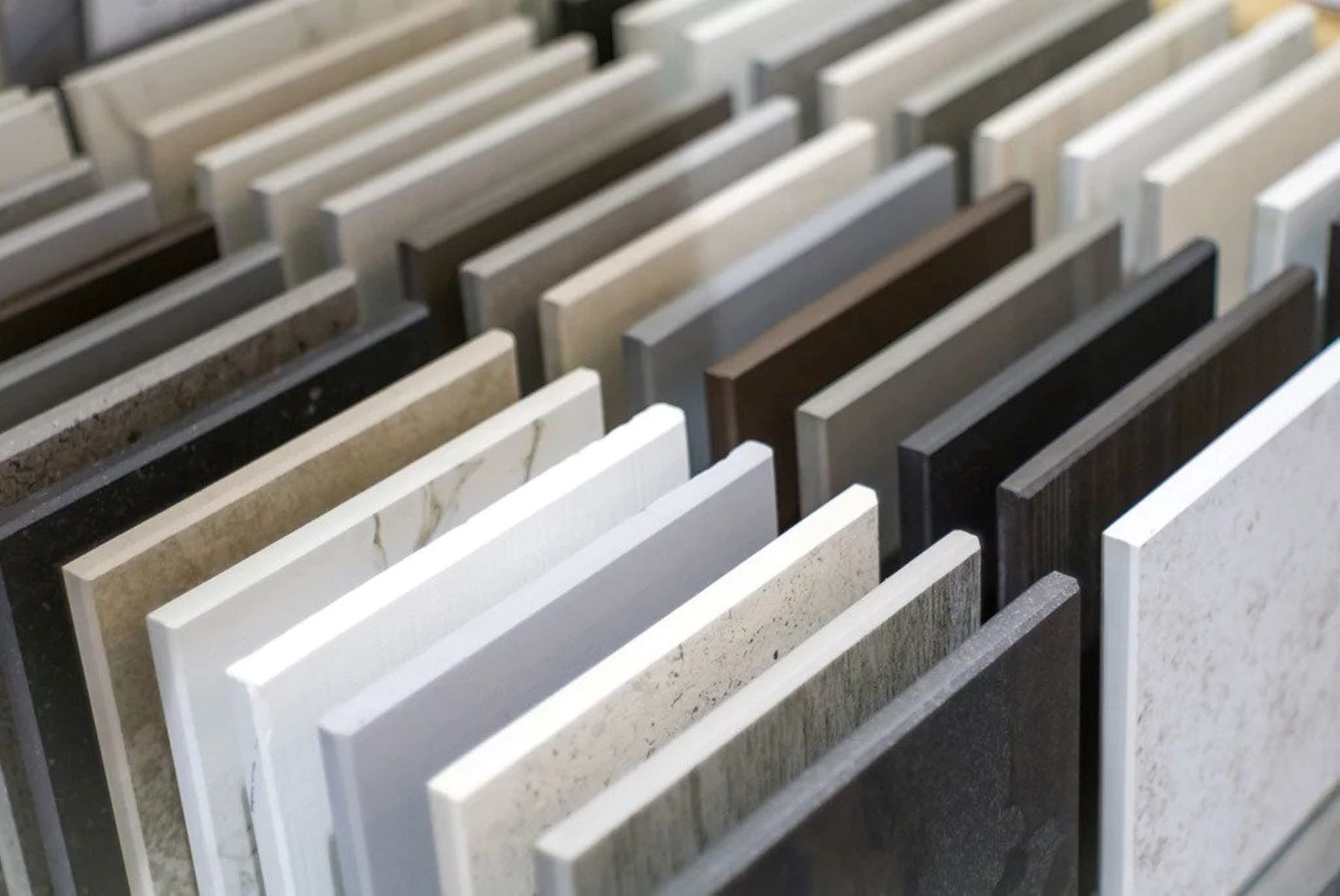
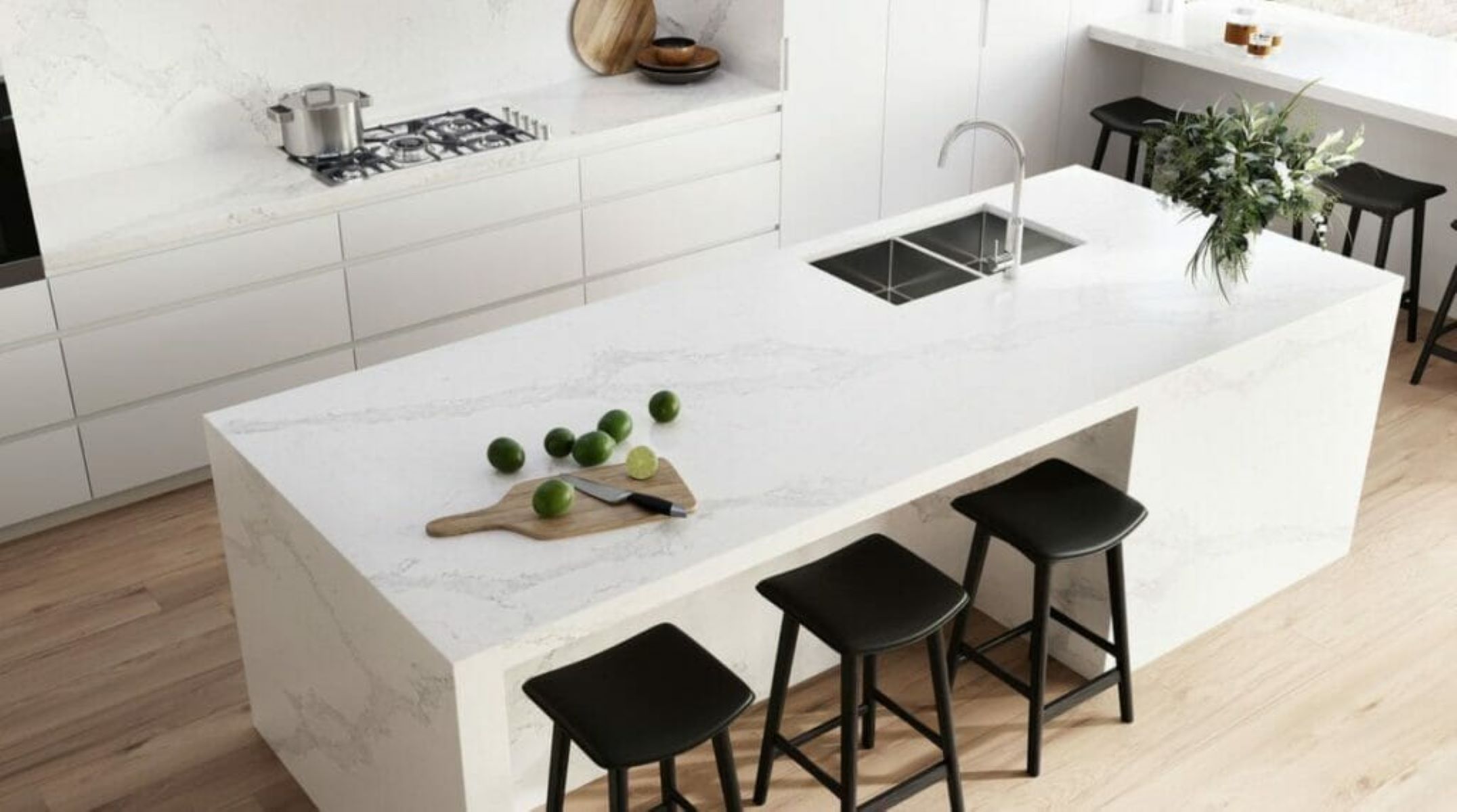
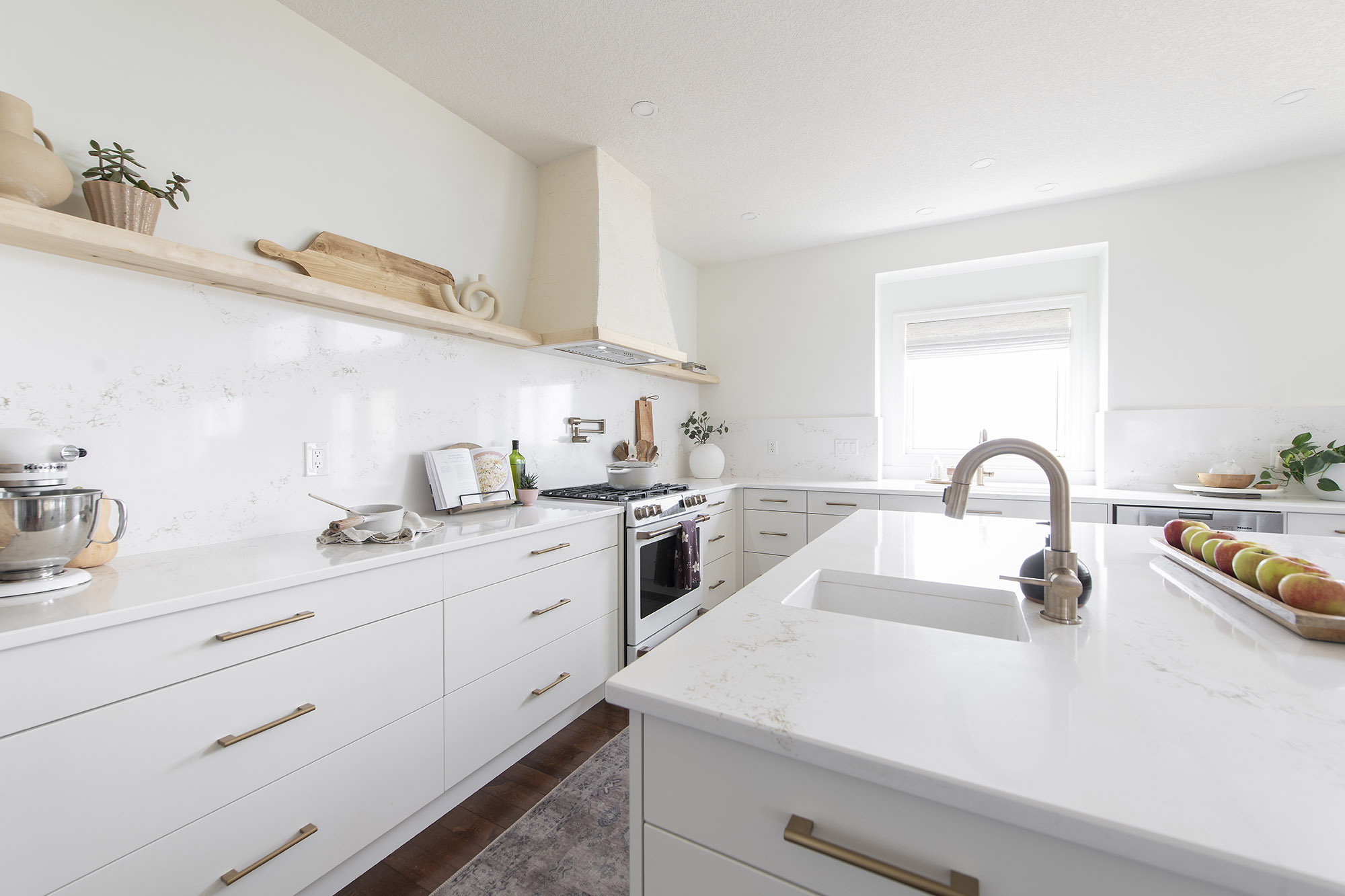



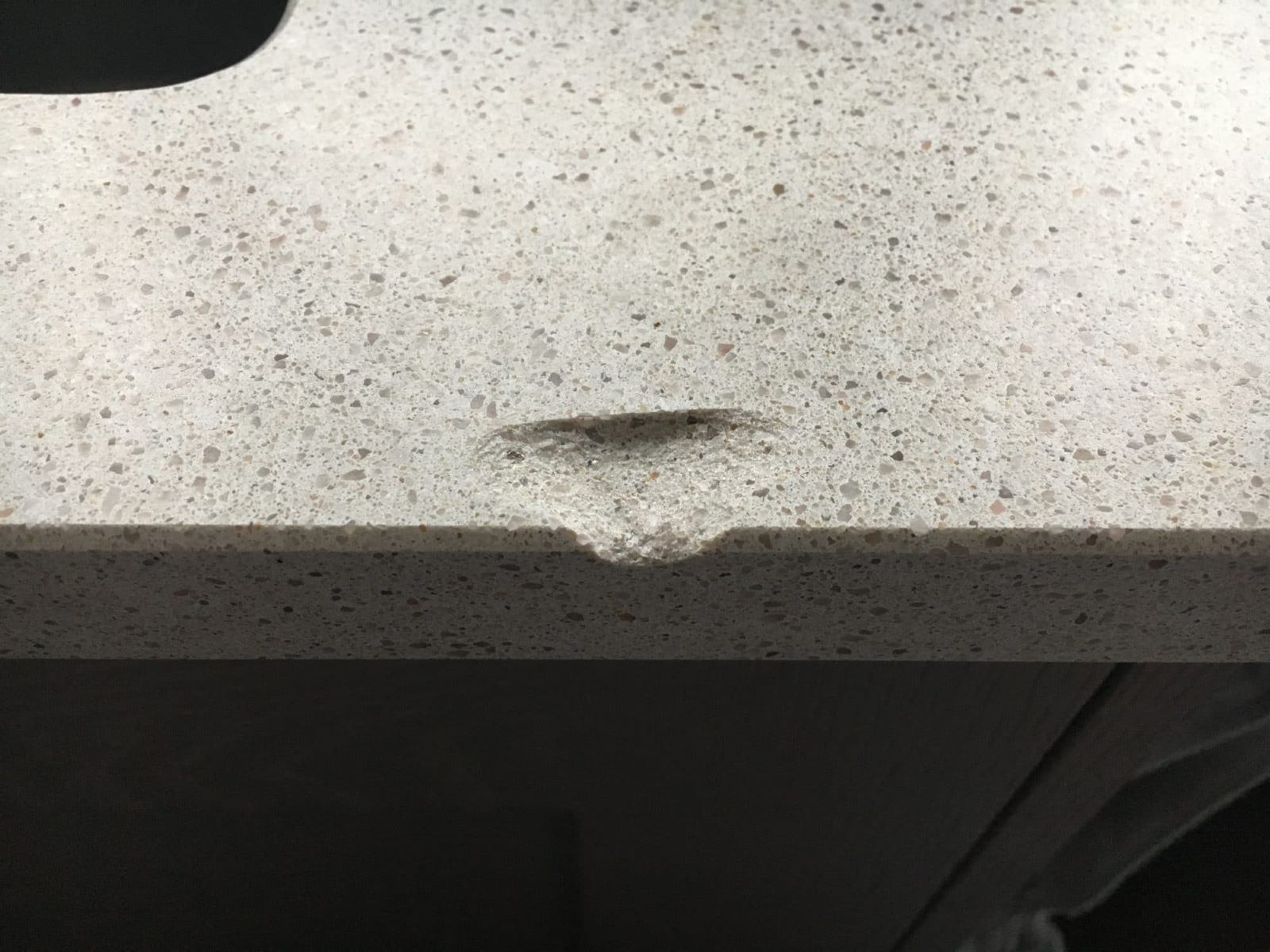

0 thoughts on “How Do You Care For Quartz Countertops”